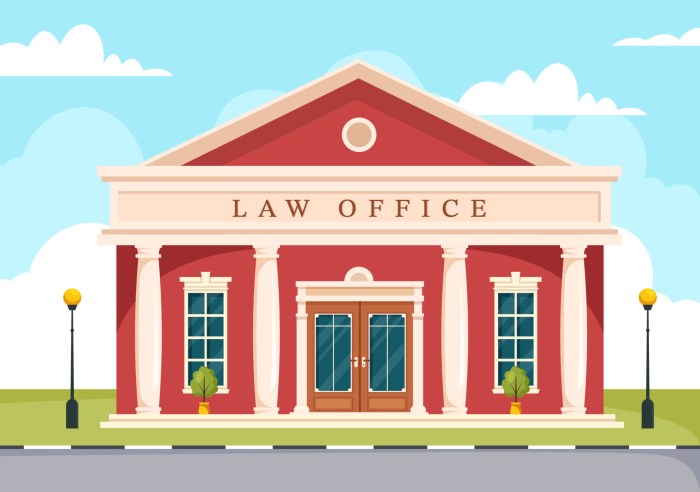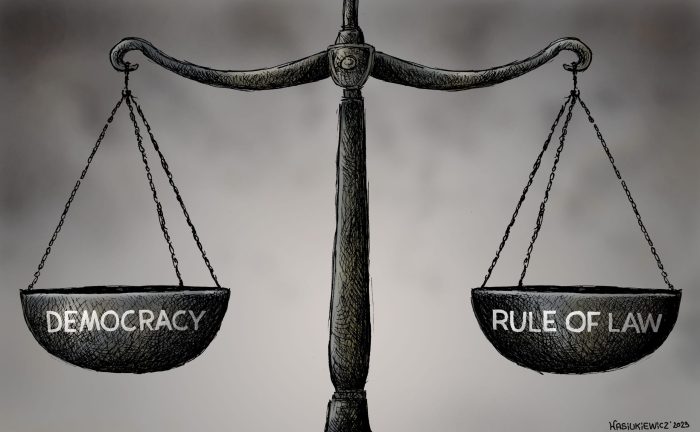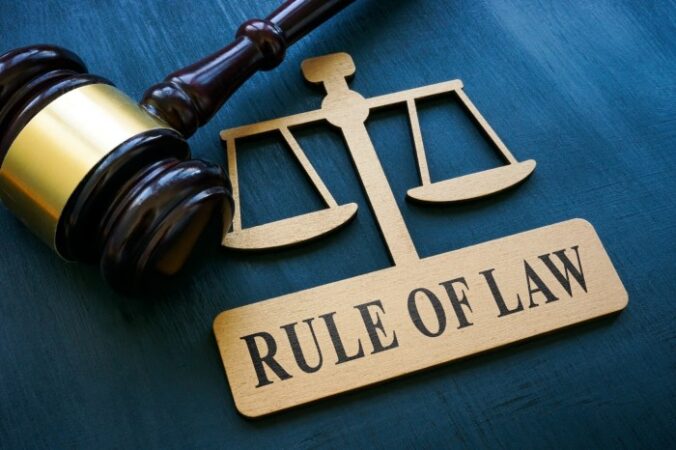
What is law? This fundamental question has captivated thinkers for centuries, as it lies at the heart of how societies function and individuals interact. Law is a complex and ever-evolving system of rules and regulations that govern our lives, from the simplest everyday interactions to the most intricate legal proceedings. It provides a framework for order, justice, and fairness, shaping our rights, responsibilities, and the very fabric of our communities.
From the ancient codes of Hammurabi to the modern constitutions of nations, law has played a pivotal role in human history. It has evolved to address changing social needs, reflect evolving values, and adapt to technological advancements. Understanding the nature of law is essential for navigating the complexities of modern society, making informed decisions, and advocating for a just and equitable world.
Definition of Law: What Is Law
Law is a complex and multifaceted concept that plays a vital role in shaping human societies. It encompasses a system of rules and regulations that govern the conduct of individuals and organizations within a particular jurisdiction. These rules are enforced by a set of institutions, such as courts and law enforcement agencies, to ensure order and justice.
Types of Law
The law can be broadly classified into different types, each with its own set of rules and principles. The most common types of law include:
- Criminal Law: This branch of law deals with offenses against the state, such as murder, theft, and assault. Criminal law aims to punish wrongdoers and deter future crime. For example, the crime of murder is punishable by imprisonment or even the death penalty in some jurisdictions.
- Civil Law: Civil law governs disputes between individuals or organizations, such as contract breaches, property disputes, and personal injury claims. Unlike criminal law, civil law focuses on compensation rather than punishment. For instance, a person who breaches a contract may be required to pay damages to the other party.
- International Law: International law governs relations between states and other international actors, such as international organizations. It covers areas such as human rights, trade, and environmental protection. For example, the Geneva Conventions, a set of international treaties, aim to protect civilians and prisoners of war during armed conflict.
Examples of Laws in Different Societies and Historical Periods
Laws have evolved over time and across different societies, reflecting the values and priorities of those societies. Here are some examples:
- Ancient Mesopotamia: The Code of Hammurabi, a set of laws created in ancient Mesopotamia around 1750 BC, established a system of punishments based on the principle of “an eye for an eye.” For instance, if someone stole property, they would face the same punishment as the crime they committed.
- Ancient Rome: Roman law developed a sophisticated system of jurisprudence that influenced legal systems in Europe and beyond. The Roman Twelve Tables, a set of laws codified in the 5th century BC, covered a wide range of topics, including property rights, contracts, and family law.
- Medieval England: The English common law system, based on judicial precedent, emerged during the medieval period. This system relies on the decisions of previous courts to guide future judgments. For example, the principle of “stare decisis,” which means “to stand by things decided,” is a fundamental aspect of common law.
Sources of Law
The law is a complex and ever-evolving system that governs our society. To understand the law, it is crucial to grasp its sources, which provide the foundation for legal rules and principles. These sources can be categorized as primary and secondary sources, each playing a distinct role in shaping the legal landscape.
Primary Sources of Law
Primary sources of law are the fundamental building blocks of legal systems, providing the authoritative basis for legal rules and decisions. They include:
- Constitutions: These documents establish the fundamental principles and structures of a government. They define the powers of different branches of government, protect individual rights, and Artikel the processes for lawmaking. For example, the United States Constitution establishes a system of checks and balances between the legislative, executive, and judicial branches, while also guaranteeing fundamental rights like freedom of speech and religion.
- Statutes: Laws enacted by legislative bodies are called statutes. They cover a wide range of subjects, from criminal offenses to environmental protection to family law. For example, the Clean Air Act, passed by the U.S. Congress, sets standards for air quality and regulates emissions from industries.
- Case Law: Also known as common law, case law is based on judicial decisions in previous cases. When a court decides a case, its ruling becomes a precedent that can be used to guide future decisions in similar cases. The principle of *stare decisis*, which means “to stand by things decided,” ensures consistency and predictability in the application of the law. This process allows courts to build upon existing legal principles and develop a coherent body of law.
The Role of Legal Precedent and Stare Decisis
The concept of *stare decisis* is central to the development and application of case law. It means that courts are bound to follow the decisions of higher courts in previous cases with similar facts and legal issues. This principle promotes consistency and predictability in the legal system. When a court makes a decision, it establishes a precedent that can be applied to future cases.
“Stare decisis is a doctrine that obligates courts to follow historical legal precedents set by prior decisions. It is a fundamental principle of common law legal systems, and it serves to ensure consistency and predictability in the application of the law.”
Influence of Customary Law and Religious Law
- Customary Law: In some societies, customary law, based on long-standing traditions and practices, plays a significant role in shaping legal rules. These customs are often unwritten but are recognized and enforced by the community. For example, in some indigenous communities, customary law governs land ownership, inheritance, and dispute resolution.
- Religious Law: Religious law derives from religious texts and teachings and provides a framework for legal rules and ethical principles. For example, Islamic law, based on the Quran and Sunna, influences legal systems in many Muslim-majority countries, addressing issues like family law, inheritance, and criminal justice.
Functions of Law
The law serves many essential functions in society. It provides a framework for order and stability, protects individual rights, and facilitates economic activity. Without a legal system, societies would be chaotic and unpredictable.
Maintaining Order and Protecting Individual Rights
The law establishes rules and regulations that govern behavior within a society. This helps to create a sense of order and predictability, making it possible for individuals to live and work together peacefully. For example, traffic laws ensure the safe and efficient movement of vehicles, while criminal laws protect individuals from harm.
The law also plays a crucial role in protecting individual rights. Constitutions, human rights conventions, and other legal instruments define and safeguard fundamental rights, such as the right to life, liberty, and freedom of expression. These legal protections help to ensure that individuals are treated fairly and with dignity.
Resolving Disputes and Enforcing Contracts
Disputes arise in all aspects of life, whether between individuals, businesses, or governments. The law provides a mechanism for resolving these disputes through courts or other legal processes. This allows for fair and impartial resolution of conflicts, preventing them from escalating into violence or anarchy.
The law also plays a vital role in enforcing contracts. Contracts are agreements that create legally binding obligations. The law ensures that these obligations are met, providing a framework for businesses and individuals to engage in economic transactions with confidence. Without the ability to enforce contracts, economic activity would be severely hampered.
Relationship Between Law and Morality, What is law
The relationship between law and morality is complex and often debated. While some laws may reflect widely held moral values, others may not. For example, laws against theft reflect the moral principle of respect for property. However, laws that prohibit certain types of speech may be seen as restricting freedom of expression, even if they are intended to protect individuals from harm.
“The law is a reflection of the moral values of a society.” – John Rawls
It is important to note that the law is not always a perfect reflection of morality. Laws can be influenced by political considerations, economic interests, and social pressures. However, the law plays an important role in shaping and reinforcing moral values, and in promoting a just and equitable society.
Legal Systems

The world’s legal systems are diverse, each with its own history, principles, and methods of applying the law. Understanding these differences is crucial for navigating the complexities of international law and business. This section explores the key distinctions between common law and civil law systems, the structures of legal institutions, and the roles of legal professionals.
Common Law vs. Civil Law
The two primary legal systems are common law and civil law. Common law, originating in England, relies on precedent, meaning judges’ decisions in previous cases, known as case law, are binding on future decisions. This system emphasizes judicial interpretation and the development of law through case-by-case adjudication. In contrast, civil law, rooted in Roman law, relies primarily on codified statutes and legislative pronouncements. Judges in civil law systems interpret the law as written in the code, rather than relying on precedent.
- Common Law:
- Relies on precedent (stare decisis) established through judicial decisions.
- Judges play a significant role in shaping the law through their interpretations of cases.
- Examples: United States, United Kingdom, Canada, Australia, India.
- Civil Law:
- Primarily based on codified statutes and legislative pronouncements.
- Judges apply the law as written in the code, with less emphasis on precedent.
- Examples: France, Germany, Italy, Spain, China, Japan.
Structure and Operation of Legal Institutions
Legal institutions, such as courts and legislatures, play essential roles in shaping and enforcing the law.
- Courts: Courts are responsible for resolving disputes, interpreting the law, and ensuring its application.
- Courts in common law systems often have a hierarchical structure, with lower courts resolving less complex cases and higher courts handling appeals and setting precedents.
- Civil law systems typically have a more centralized court structure with specialized courts for different types of cases.
- Legislatures: Legislatures are responsible for enacting laws, known as statutes, which provide the framework for legal regulation.
- In common law systems, legislatures play a vital role in codifying and clarifying existing law, while courts interpret and apply it.
- In civil law systems, legislatures are the primary source of law, and judges primarily apply the codified law.
Role of Legal Professionals
Legal professionals, including judges, lawyers, and prosecutors, play crucial roles in the legal system.
- Judges: Judges are responsible for presiding over court proceedings, interpreting the law, and rendering judgments.
- In common law systems, judges are often appointed for life and are expected to be independent and impartial.
- In civil law systems, judges may be appointed for fixed terms and may have more specific training in the application of codified law.
- Lawyers: Lawyers represent clients in legal matters, providing legal advice, negotiating settlements, and advocating in court.
- Lawyers in common law systems often specialize in specific areas of law, such as criminal law, contract law, or family law.
- Lawyers in civil law systems may have a broader range of practice areas and may be more involved in drafting legal documents.
- Prosecutors: Prosecutors are government officials responsible for bringing criminal charges against individuals accused of crimes.
- Prosecutors have a duty to uphold the law and ensure justice is served.
- They must present evidence and arguments to support the charges against the accused.
Law and Society

Law and society are intricately intertwined, influencing and shaping each other in profound ways. Law serves as a framework for social order, reflecting and reinforcing societal norms and values. It provides a mechanism for resolving disputes, protecting individual rights, and promoting social justice. However, law is not static; it evolves alongside societal changes, adapting to new challenges and emerging issues.
Impact of Law on Social Norms and Values
Law plays a crucial role in shaping and reinforcing social norms and values. Laws against discrimination, for instance, reflect societal values of equality and fairness. Similarly, laws regulating public behavior, such as those related to traffic rules or public intoxication, reflect societal expectations for order and safety.
- Legalization of Same-Sex Marriage: The legalization of same-sex marriage in many countries has been a significant example of law reflecting and promoting societal change. It has challenged traditional norms and values related to marriage and family, leading to greater acceptance and recognition of LGBTQ+ rights.
- Environmental Laws: Environmental laws, such as those regulating pollution and resource management, reflect growing societal concern for the environment and sustainability. They encourage responsible behavior and promote sustainable practices, contributing to a shift in societal values towards environmental protection.
Relationship Between Law and Social Change
Law is not only a reflection of society but also a catalyst for social change. By enacting new laws or reinterpreting existing ones, societies can address pressing social issues and bring about desired transformations.
- Civil Rights Movement: The Civil Rights Movement in the United States is a prime example of how law can be used to advance social justice. Through landmark legislation like the Civil Rights Act of 1964 and the Voting Rights Act of 1965, the legal system played a pivotal role in dismantling segregation and promoting racial equality.
- Women’s Suffrage: The fight for women’s suffrage, which culminated in the passage of the 19th Amendment to the U.S. Constitution, illustrates how legal reforms can empower marginalized groups and lead to significant social change.
Role of Law in Addressing Contemporary Social Issues
Law continues to play a vital role in addressing contemporary social issues, such as climate change, technological advancements, and social inequalities.
- Climate Change: International agreements like the Paris Agreement aim to regulate greenhouse gas emissions and promote sustainable development. National and regional laws also play a crucial role in mitigating climate change impacts and fostering a transition to a low-carbon economy.
- Cybersecurity: The rapid evolution of technology has brought about new challenges related to cybersecurity and data privacy. Lawmakers are increasingly enacting laws to protect individuals’ data, combat cybercrime, and regulate the use of artificial intelligence.
- Social Inequalities: Laws promoting equal opportunities, addressing discrimination, and providing social safety nets are essential for tackling social inequalities. These laws aim to ensure fair access to education, healthcare, and economic opportunities for all members of society.
Conclusion

In conclusion, “What is law?” is a question that leads us on a journey through the intricate tapestry of human civilization. From its foundational principles to its diverse applications, law shapes our lives in countless ways, ensuring order, protecting rights, and providing a framework for resolving disputes. As we navigate the complexities of the modern world, understanding the nature of law becomes increasingly crucial for informed decision-making, responsible citizenship, and the pursuit of a more just and equitable society.
FAQ Insights
What are some examples of laws in everyday life?
Traffic laws, property laws, contract laws, and consumer protection laws are just a few examples of laws we encounter daily.
How can I learn more about the law?
There are many resources available to learn about the law, including law libraries, online legal databases, and legal textbooks. You can also consult with a lawyer for personalized advice.
What is the difference between criminal law and civil law?
Criminal law deals with offenses against the state, while civil law deals with disputes between individuals or entities.
What is the role of the judiciary in a legal system?
The judiciary interprets and applies the law, resolving disputes and ensuring that laws are upheld.





